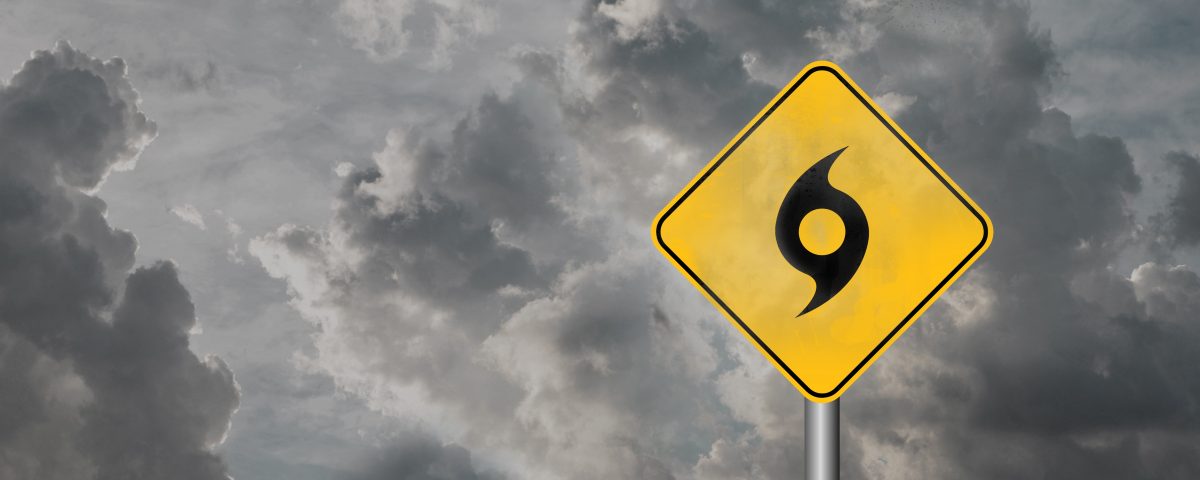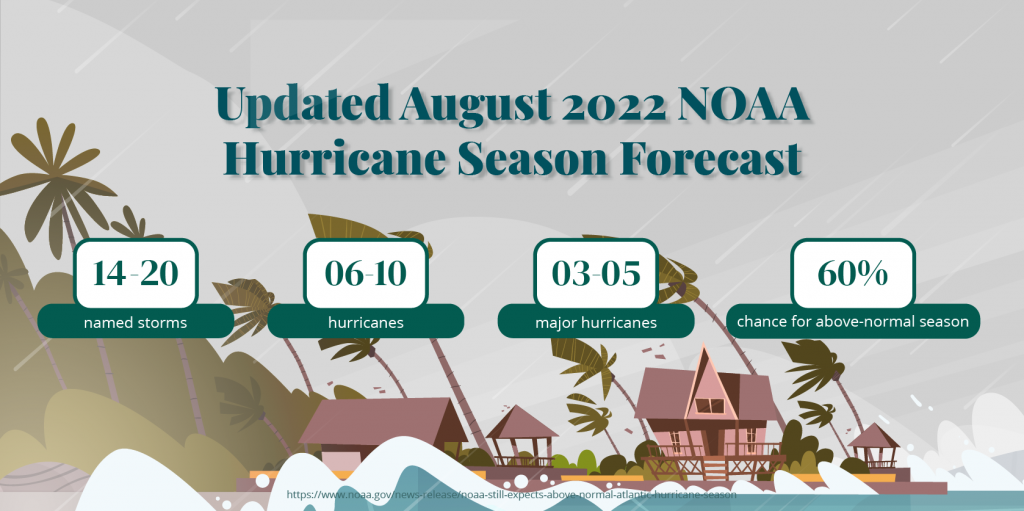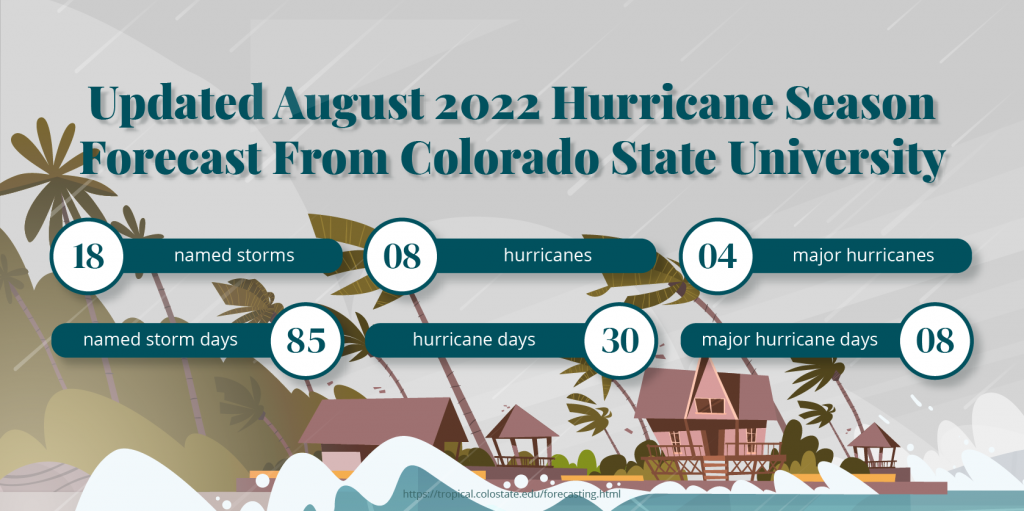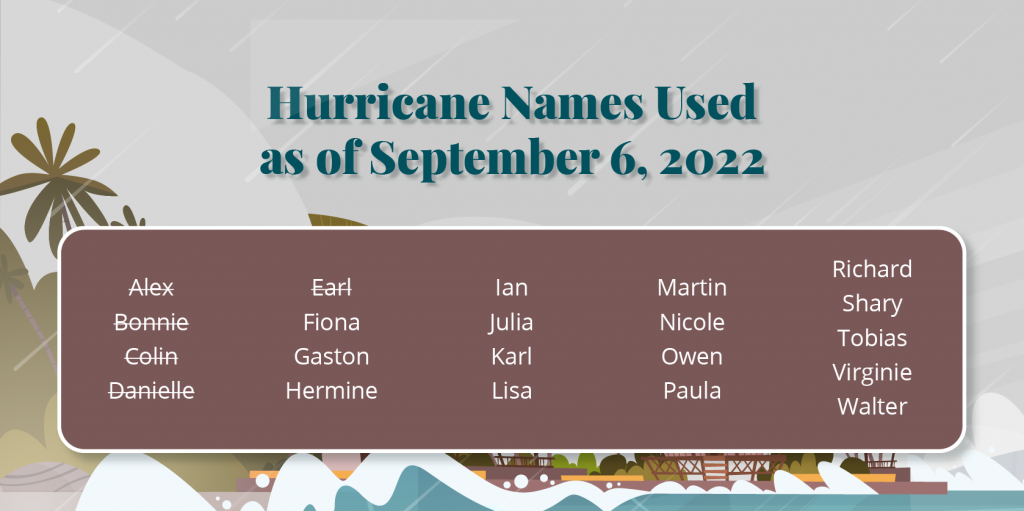- WE’RE HERE TO HELP | SE HABLA ESPAÑOL
- 800.586.5555
Has the NOAA Changed Their 2022 Hurricane Season Prediction?
Has the NOAA Changed Their 2022 Hurricane Season Prediction?

The short answer is not really. In August, the National Oceanic and Atmospheric Administration slightly lowered their prediction of an above-normal hurricane season from 65 percent to 60 percent and increased the chance of a normal activity season to 30 percent, but the chance of a below-normal season was left at 10 percent.
September and October are still notoriously active months for hurricane season, and just in the past week we’ve seen the development of multiple hurricanes. Thankfully, neither of those hurricanes appear to be heading toward Florida.

So, what’s the deal with this hurricane season? And can Floridians rest easy for the remainder of 2022?
La Niña and Warm Ocean Water Is Still a Factor
Many of the traditional factors that contribute to over-active hurricane seasons are still in effect, including high Atlantic surface temperature and La Niña. Current Atlantic and Gulf surface temperatures of the waters around Florida are in the 82-degree to 86-degree range, which is plenty warm enough to fuel powerful hurricanes.
One meteorologist noted that dry air over parts of the Atlantic is inhibiting the development of the thunderstorms that accompany tropical waves. When those thunderstorms break up, they greatly curtail the development of tropical depressions, tropical storms and hurricanes.
Another factor were cooler-than-average temperatures in the Atlantic between Africa and the Caribbean during the month of August. Cooler temperatures in the region of the Atlantic where most of our tropical waves develop resulted in nearly no storms that entire month.
Perceptions and Expectations Have Changed
Media attention has primed the country to expect activity throughout the entire hurricane season, when the reality is often a much more concentrated period hurricane formation. During an average year there are only a few hurricanes before mid-August. It’s much more common for the majority of named storm activity to occur between mid-August and mid-October.
That means we’re currently sitting in the peak of hurricane season, and we’ve still got a month and a half to go.
As Atlantic surface temperatures remain high, it’s important for Florida home and business owners to maintain their vigilance. Floridians should remember 2017, a year in which the hurricane season seemed relatively inactive for our state until Hurricane Irma made landfall on September 9th. Although two tropical storms made landfall in Florida in 2017 prior to Irma (Tropical Storm Cindy in late July and Tropical Storm Emily at the end of July/beginning of August), the state made it through most of the season relatively unaffected until September.
A slow hurricane season start and a couple near misses does not mean Florida is out of the woods.
Latest 2022 Hurricane Forecast From Colorado State University

Earlier in the year we published a post about Colorado State University’s predictions for the 2022 hurricane season. Their current forecast is essentially the same as the NOAA’s prediction. They’ve downgraded just barely, but overall, the forecast is relatively unchanged:
- 18 named storms
- 85 named storm days
- 8 hurricanes
- 30 hurricane days
- 4 major hurricanes
- 8 major hurricane days
Those predictions are still higher than the average hurricane season activity established by the 1991 through 2020 hurricane seasons.
Colorado State University cited some of the same factors as other meteorological experts:
- Sea surface temperatures are warmer than normal in the tropical Atlantic
- August temperatures were slightly cooler than normal in subtropical Atlantic
- Vertical wind shear anomalies over the Caribbean and tropical Atlantic were slightly weaker than normal
They reiterated the higher-than-normal chance of a major hurricane making landfall in the Caribbean or along the continental United States. That’s far from a guaranteed landfall in Florida, but it’s still a significant enough risk that residents should remain vigilant.
Stay Prepared for Florida Hurricanes and the Resulting Property Damage

Florida may not have been impacted by any named storms in 2022, but there’s still been severe weather, as demonstrated by NASA’s trouble getting their Artemis 1 moon rocket off the ground. In fact, it was nearly struck by lightning while sitting on the launch pad. Lightning-sparked wildfires have popped up near North Lauderdale and the frequency and ferocity of thunderstorms have led to an increase in media reminders about the dangers of lightning.
Florida summers can be perilous for people and property, even when hurricanes aren’t on the horizon. Make sure your family knows your evacuation route and has a hurricane kit ready to go. Now is also a good time to familiarize yourself with your home insurance policy. If you have any questions about what is and isn’t covered or your named storm deductible, call your insurance company ASAP.
Even homeowners who are familiar with their policy may still get blindsided by hurricane damage claim denials or underpayment. If you don’t believe your home damage claim is being treated fairly, it may be in your best interest to speak with a property damage lawyer.
